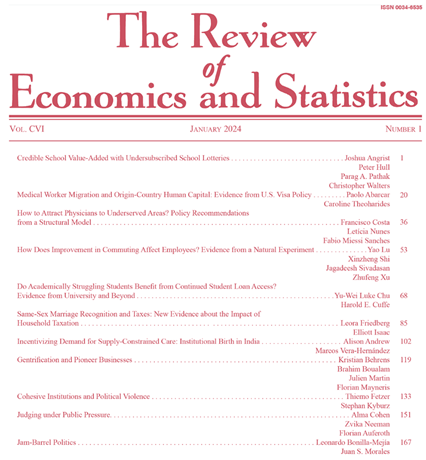Optimization of The Budget of The Industrial Complex Transformation Strategy Based on Neural Network Modeling
IF 7.6
1区 经济学
Q1 ECONOMICS
引用次数: 0
Abstract
The purpose of the study is to develop and test methodological tools for optimizing the structure and directions of budget spending strategies for transformations of industrial complexes. The relevance of the study is due to the need to restructure business processes and models of strategic management in industry, as well as the overall increase in the efficiency of domestic enterprises in the conditions of the formation of the digital economy. Currently, Russian industry is developing mainly along an extensive path that does not provide a deep innovative transformation of business and the necessary increase in labor productivity.Materials and methods. The data source for the study is Rosstat materials on the development of industry in the Russian Federation, indicators of economic activity of industrial companies contained in SPARK-Interfax databases, as well as the results of monitoring activities of KPMG and the Agency for Strategic Initiatives. The methods of neural network modeling and budgeting, comparative quantitative and structural analysis, index approach and other tools are used in the work.The results of the study. The article substantiates the formation of budgets for transformation strategies of industrial companies based on groups of strategically significant expenses. The analysis has been carried out and the problems of the current budget structure of the transformation strategies of the industrial complexes of Voronezh, Lipetsk, Kursk and a number of other regions have been identified. A methodological technique has been developed that allows choosing the optimal option for allocating the strategy budget funds between the key areas of transformation of the industrial complex, characterized by the use of neural network modeling technologies and providing the greatest increase in revenue and labor productivity while maintaining the financial and economic stability of the enterprise. A neural network of direct signal propagation has been constructed, which is used to predict the values of financial and economic indicators of an industrial complex depending on the allocation of funds in the budget of its strategy. Based on the conducted modeling, the optimization of the budgets of the strategies of enterprises was carried out and the results of their transformation (in terms of increasing revenue and labor productivity) were predicted.Conclusion. The results of the study show that a significant increase in labor productivity in industry can be achieved by increasing the amount of financing and implementing measures aimed at digitalizing business processes, conducting R&D and introducing organizational innovations at enterprises. The analysis shows the high potential effectiveness of transformation strategies of all studied industrial complexes after optimizing their budgets. The highest indicators can be achieved at JSC “Industrial Complex “Energia”, JSC “Schetmash”, JSC “Kursk Electrical Equipment Plant” and other companies. The results of the study can be used by the management of industrial structures as scientific, methodological and practical tools for carrying out institutional changes at enterprises and industrial complexes.基于神经网络建模的工业综合体转型战略预算优化
本研究的目的是开发和测试方法工具,以优化工业综合体转型预算支出战略的结构和方向。该研究的相关性是由于在数字经济形成的条件下,需要重组行业的业务流程和战略管理模式,以及国内企业效率的整体提高。目前,俄罗斯工业主要是走粗放型发展道路,没有提供深层次的商业创新转型和必要的劳动生产率提高。材料和方法。这项研究的数据来源是俄罗斯国家统计局关于俄罗斯联邦工业发展的材料、SPARK-Interfax数据库所载工业公司经济活动指标以及毕马威和战略倡议机构监测活动的结果。运用了神经网络建模与预算、比较定量与结构分析、指标分析法等方法。研究的结果。本文以具有战略意义的费用分组为基础,实证了工业企业转型战略预算的形成。已经进行了分析,并确定了沃罗涅日,利佩茨克,库尔斯克和其他一些地区工业综合体转型战略的当前预算结构的问题。开发了一种方法技术,允许在工业综合体转型的关键领域之间选择分配战略预算资金的最佳选择,其特点是使用神经网络建模技术,在保持企业财务和经济稳定的同时,提供最大的收入和劳动生产率增长。构建了一个信号直接传播的神经网络,用于根据工业综合体战略预算中的资金分配情况预测其财务和经济指标的值。基于所建立的模型,对企业的战略预算进行了优化,并预测了企业转型的结果(在增加收入和劳动生产率方面)。研究结果表明,通过增加融资金额和实施旨在实现业务流程数字化、开展研发和引入企业组织创新的措施,可以显著提高工业劳动生产率。分析表明,经过预算优化后,所研究的工业园区的转型策略具有较高的潜在有效性。最高的指标可以在JSC“能源工业综合体”、JSC“scheetmash”、JSC“库尔斯克电气设备厂”和其他公司实现。这项研究的结果可以被工业结构的管理部门用来作为在企业和工业综合体进行体制改革的科学、方法和实用工具。
本文章由计算机程序翻译,如有差异,请以英文原文为准。
求助全文
约1分钟内获得全文
求助全文
来源期刊

Review of Economics and Statistics
Multiple-
CiteScore
8.50
自引率
0.00%
发文量
175
期刊介绍:
The Review of Economics and Statistics is a 100-year-old general journal of applied (especially quantitative) economics. Edited at the Harvard Kennedy School, the Review has published some of the most important articles in empirical economics.
 求助内容:
求助内容: 应助结果提醒方式:
应助结果提醒方式:


